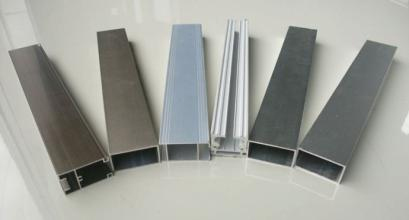The Buzz on Alcast Company
Alcast Company for Dummies
Table of Contents3 Easy Facts About Alcast Company DescribedA Biased View of Alcast CompanyUnknown Facts About Alcast CompanyA Biased View of Alcast CompanyAlcast Company for BeginnersAlcast Company Fundamentals Explained
Chemical Comparison of Cast Aluminum Alloys Silicon advertises castability by reducing the alloy's melting temperature level and boosting fluidness during casting. Additionally, silicon contributes to the alloy's stamina and use resistance, making it beneficial in applications where toughness is crucial, such as automobile parts and engine elements.It likewise improves the machinability of the alloy, making it simpler to refine right into completed items. In this means, iron adds to the total workability of aluminum alloys. Copper increases electrical conductivity, making it advantageous in electrical applications. It also enhances deterioration resistance and includes in the alloy's total toughness.
Manganese adds to the stamina of aluminum alloys and boosts workability (aluminum foundry). It is frequently made use of in functioned aluminum items like sheets, extrusions, and profiles. The presence of manganese help in the alloy's formability and resistance to breaking during fabrication procedures. Magnesium is a lightweight element that provides toughness and influence resistance to aluminum alloys.
The smart Trick of Alcast Company That Nobody is Talking About
It enables the manufacturing of light-weight elements with excellent mechanical residential properties. Zinc enhances the castability of light weight aluminum alloys and helps manage the solidification procedure during spreading. It boosts the alloy's strength and hardness. It is usually discovered in applications where complex forms and fine details are required, such as attractive spreadings and certain automotive parts.

The main thermal conductivity, tensile stamina, yield strength, and elongation differ. Amongst the above alloys, A356 has the greatest thermal conductivity, and A380 and ADC12 have the least expensive.
More About Alcast Company

In precision spreading, 6063 is well-suited for applications where detailed geometries and top notch surface finishes are vital. Examples include telecommunication rooms, where the alloy's premium formability enables for smooth and cosmetically pleasing styles while keeping architectural integrity. In the Lighting Solutions industry, precision-cast 6063 components produce elegant and effective illumination components that call for elaborate forms and great thermal efficiency.
It leads to a finer surface area coating and far better corrosion resistance in A360. The A360 shows premium prolongation, making it excellent for complicated and thin-walled parts. aluminum foundry In accuracy spreading applications, A360 is fit for industries such as Consumer Electronics, Telecommunication, and Power Devices. Its boosted fluidity permits intricate, high-precision elements like mobile phone cases and communication device housings.
The Ultimate Guide To Alcast Company
Its unique homes make A360 a beneficial choice for precision casting in these sectors, enhancing product resilience and top quality. aluminum casting manufacturer. Light weight aluminum alloy 380, or A380, is a commonly utilized spreading alloy with numerous distinct features.
In accuracy casting, aluminum 413 beams in the Customer Electronic Devices and Power Equipment industries. This alloy's superior corrosion resistance makes it a superb selection for outside applications, making sure resilient, resilient items in the pointed out industries.
How Alcast Company can Save You Time, Stress, and Money.
The light weight aluminum alloy you select will considerably impact both the casting procedure and the buildings of the last product. Since of this, you have to make your decision carefully and take an enlightened strategy.
Figuring out the most suitable light weight aluminum alloy for your application will certainly indicate evaluating a large array of characteristics. The initial classification addresses alloy qualities that affect the production procedure.
The Definitive Guide for Alcast Company
The alloy you pick for die casting straight influences a number of facets of the casting procedure, like exactly how easy the alloy is to collaborate with and if it is prone to casting issues. Hot splitting, also referred to as solidification breaking, is a normal die casting issue for aluminum alloys that can result in internal or surface-level splits or splits.
Particular aluminum alloys are much more at risk to hot cracking than others, and your selection must consider this. It can damage both the cast and the die, so you must look for alloys with high anti-soldering residential or commercial properties.
Corrosion resistance, which is currently a notable attribute of aluminum, can differ substantially from alloy to alloy and is a vital particular to think about depending on the environmental conditions your product will be exposed to (Aluminum Casting). Wear resistance is one more home generally looked for in light weight aluminum products and can set apart some alloys